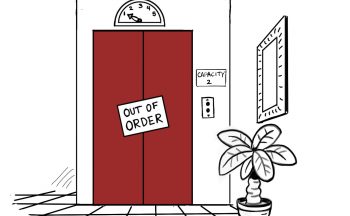 December 2023
December 2023
Condominium corporations are responsible for the management and oversight of physical property and financial assets, and the living environments of many hundreds of people. During the course of their duties, management and condo boards are responsible for signing and executing contracts involving many companies and individuals. This would include property management companies, security and concierge services, landscaping and snow removal contractors, and cleaning services. Delivery of electricity, gas, water, cable, internet, waste management and pest control all likely require contracts.
Contracts are usually binding, meaning that they cannot arbitrarily be cancelled. They include provisions that, if not adhered to, can result in financial loss and other consequences. Before signing, contracts should be reviewed and signed by the condominium manager or someone from the condo board.
Termination Clauses
Unreasonable termination clauses leave a
condominium corporation without any viable
options to be released from a contract for valid reasons that include poor performance or higher than agreed upon costs
One of the most important considerations is the termination clause. This allows the condominium corporation to terminate a contract if conditions change. It may be that services are no longer required, costs have escalated in an unexpected way, or one party is dissatisfied with how the arrangement is working out.
There may be reasons to terminate a contract. Most termination clauses are reasonable. Some contracts contain termination clauses favouring service providers or contractors that make it virtually impossible for a condominium corporation to terminate the vendor.
Unreasonable termination clauses leave a condominium corporation without any viable options to be released from a contract for valid reasons that include poor performance or higher than agreed upon costs.
As a general rule, contracts should allow for termination without reason with 60 or 90 days written notice. Any sections specifying allowable reasons for terminating a contract should not be overly complicated, onerous, waiting an unreasonable time or requiring difficult-to-satisfy conditions.
Indemnification
Indemnification provisions protect the corporation from financial loss, errors and injuries arising from the work. For snow plowing, these provisions can make the contractor responsible for contractor injuries while doing the work or slip and falls by residents or guests inclusive of legal costs. Condominium managers and condo boards should ensure their corporation is listed as an additional insured under the provider’s insurance policy, and require that a Certificate of Insurance be provided to confirm this before a contract is signed.
Liability for Safety Protocols and Liability
Ontario’s Occupational Health and Safety Act (OSHA) requires that one party be responsible for protecting workers on a site from health and safety hazards. Construction projects should specify that the general contractor for the project is solely designated as the “constructor” for the project. This minimizes the corporation’s risk or liability to the greatest extent possible.
Renewal Provisions
It is advisable not to include automatic renewal of a contract
Contracts signed by a condominium corporation may be for fixed terms such as one, five or ten years.
At the end of a term, contracts may be automatically renewed if notice is not provided by a specified date prior to the contract’s expiration. Future dates and termination obligations are too easily forgotten. It is advisable not to include automatic renewal of a contract.
Best to read contracts closely before signing and pay close attention to the details. Always read the fine print. Failing to do so could be a costly mistake.







